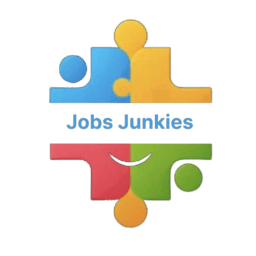Interviews can be daunting, but preparation is key to success. Here’s a breakdown of the top 15 common interview questions, along with tips on how to answer them effectively.
1. Tell Me About Yourself
- Tip: Provide a brief professional summary that includes your background, skills, and what you’re looking for in your next role.
- Example: “I am a marketing professional with over five years of experience in digital marketing, specializing in social media and content creation. I’ve successfully increased brand engagement for my previous employer by 30% in six months. I’m excited to bring my skills to your team.”
2. What Are Your Strengths?
- Tip: Choose strengths that align with the job description and provide examples.
- Example: “One of my strengths is my attention to detail. In my last project, I caught errors that saved the company time and money.”
3. What Are Your Weaknesses?
- Tip: Mention a genuine weakness and how you’re working to improve it.
- Example: “I tend to take on too many projects at once, but I’ve learned to prioritize my tasks better and communicate with my team to delegate.”
4. Why Do You Want to Work Here?
- Tip: Research the company beforehand and tie your interests to their values and goals.
- Example: “I admire your commitment to sustainability, and I’m passionate about contributing to environmentally-friendly initiatives.”
5. Why Should We Hire You?
- Tip: Highlight your skills and how they meet the company’s needs.
- Example: “My extensive experience in project management and my proven track record of delivering projects on time will help your team achieve its goals.”
6. Where Do You See Yourself in Five Years?
- Tip: Discuss your career goals and how they align with the company’s direction.
- Example: “I see myself growing within the company and taking on leadership roles where I can mentor others.”
7. Describe a Challenge You’ve Faced at Work.
- Tip: Use the STAR method (Situation, Task, Action, Result) to structure your answer.
- Example: “In my last role, we faced a budget cut. I collaborated with my team to identify cost-effective strategies that maintained our project quality, resulting in a successful launch.”
8. How Do You Handle Conflict?
- Tip: Discuss a specific instance where you resolved a conflict professionally.
- Example: “I once disagreed with a colleague on a project approach. I initiated a discussion to understand their perspective, and we reached a compromise that improved the project outcome.”
9. What Are Your Salary Expectations?
- Tip: Research industry standards and provide a range based on your findings.
- Example: “Based on my research and experience, I believe a salary range of $60,000 to $70,000 is appropriate for this role.”
10. Do You Have Any Questions for Us?
- Tip: Always have questions prepared that show your interest in the role and company.
- Example: “Can you describe the team I would be working with and the projects I would be involved in?”
11. How Do You Prioritize Your Work?
- Tip: Share your method for prioritizing tasks and managing deadlines.
- Example: “I use a combination of task management software and the Eisenhower Matrix to prioritize tasks based on urgency and importance.”
12. Tell Me About a Time You Failed.
- Tip: Discuss a specific failure and the lessons learned from it.
- Example: “I missed a deadline once because I underestimated the project scope. I learned to better assess timelines and communicate with my team to ensure we’re on track.”
13. How Do You Stay Motivated?
- Tip: Explain what drives you in your work and how you maintain your enthusiasm.
- Example: “I stay motivated by setting personal goals and celebrating small achievements along the way.”
14. What Do You Know About Our Company?
- Tip: Research the company thoroughly and mention specific facts or recent news.
- Example: “I know that your company recently launched a new product line focusing on sustainable materials, which aligns with my passion for environmental responsibility.”
15. How Do You Handle Stress?
- Tip: Share your strategies for managing stress in high-pressure situations.
- Example: “I handle stress by staying organized and taking short breaks to recharge. This helps me maintain focus and productivity.”
Conclusion
By preparing answers to these common interview questions, you can approach your next interview with confidence. Remember to customize your responses based on the specific role and company, showcasing your unique qualifications and fit for the position.
